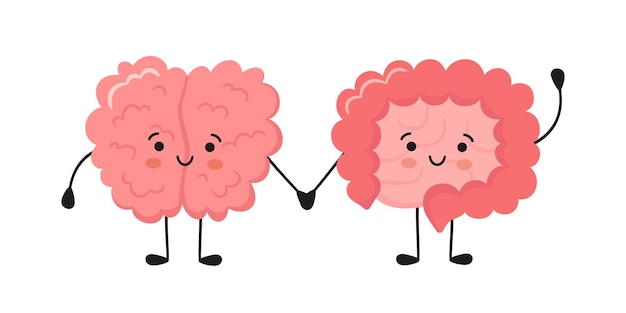It is very common to hear that the gut is the second brain, and in fact, there are several scientifically validated arguments that prove this claim. The gut is responsible for producing many of the neurotransmitters that the brain needs and that are closely linked to our emotions and thoughts. The microbiome is the key piece of this second brain and has remarkable power over our mood and feelings. And why do all these bacteria that reside in our gut have the ability to influence an organ that is seemingly so far away? Because they have a huge impact on the biochemical processes that the brain uses to process emotions, feelings and thoughts, as well as to reduce stress and increase mental productivity and concentration. The gut is responsible for producing about 90% to 95% of the hormone serotonin, which is a neurotransmitter that acts in the brain and one of the so-called happiness hormones that has a great influence on overall well-being, so you can see the impact and connection that the gut has with the brain. Science also states that gut bacteria produce and respond to other chemicals that the brain uses, such as melatonin, which regulates sleep, dopamine and noradrenaline, which influence mood and stress and, among others. The microbiome is very important in determining whether the gut is able to produce the right chemicals and in the right amounts, so an imbalance in it disrupts the gut, which in turn can result in the onset of various symptoms such as mental confusion and thinking difficulties, memory problems, anxiety, and altered mood. When the microbiome is balanced and healthy and the gut is functioning at maximum efficiency, all these processes related to the brain-gut connection are optimized and several positive signs begin to appear, such as greater tranquility, lucidity, energy, focus, mental availability, emotional capacity, and vitality to face the challenges of everyday life.



